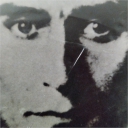udpsend and receive
@toddak to fix the missing dependancies run this in terminal.............
sudo apt-get update
(and then)
sudo apt-get upgrade -f
In fact you should do all of these from time to time....... (not the bits in brackets)
sudo apt-get update
sudo apt-get upgrade
sudo apt-get upgrade -f (fix missing dependencies)
sudo rpi-update (firmware and kernel)
It is most likely that you need pulse audio for Pd to run....... I think that it is essential....
and maybe the dejavu fonts (uncertain)........ and so the command above should solve your problem and Pd should then run....
ALSO...... if it will still not run once the missing dependancies have been installed you should check that you are running an armhf system:...........
Run this command in terminal:
readelf -A /proc/self/exe | grep Tag_ABI_VFP_args
If the Tag_ABI_VFP_args tag is found, then you're running on an armhf system. If nothing is returned, then it's armel. To show you an example, here's what happens on a Raspberry Pi running the Raspbian distribution:
pi@raspberrypi:~$ readelf -A /proc/self/exe | grep Tag_ABI_VFP_args
Tag_ABI_VFP_args: VFP registers
This indicates an armhf distro, which in fact is what Raspbian is. On the original, soft-float Debian Wheezy distribution, here's what happens:
pi@raspberrypi:~$ readelf -A /proc/self/exe | grep Tag_ABI_VFP_args
Nothing returned indicates that the kernel is armel.
David.
Pure Data / Raspberry Pi / Realtime Audio / Permissions
THE GOAL:
I want my Raspberry Pi 2 to automatically start up the Jack server with realtime scheduling, and subsequently start Pure Data with realtime scheduling, load a patch &c. without any user intervention from a login shell.
As a performance artist working primarily with psychodrama (the technology is definitely NOT the important part here), fiddling around at a terminal right before or during a performance is kind of... psychically inconvenient. I need a box that I can plug in, give the audio output to the sound guy, and be ready to go.
PREREQUISITES:
I use Raspbian with a Linux kernel compiled with realtime goodness. I have hand-compiled Jack2 and Pure Data with realtime support in order to take advantage of this. Running a process with realtime priority requires the proper PAM directives set in /etc/security/limits.conf and related places, but that is beyond the scope of this little write-up.
Also somewhat relevant: I use a M-Audio MobilePre USB soundcard (sounds pretty awful by today's standards, but it's an extremely USEFUL box and sounds good enough for the work I do). For full-duplex sound, this requires the RasPi's USB to be set to single speed. In this configuration, I can get just under 2.9ms latency with good CPU overhead for Pure Data to run a few of my 64-voice wavetable and delay line granulators. Yeah!
THE PROBLEM:
Purely by happenstance, I had given the jackd command in my startup script the option “-s” which allows the server to ignore overruns and so on. So things seemed to be working as expected, but I noticed a lot more glitches than when I manually started up Jack and Pd from the terminal without the “-s” option. Upon removing it from my startup script, everything failed! WAH.
So I started piping STDERR and STDOUT to text files so I could read what either Jack or Pd were complaining about. As it turns out, Jack was unable to start with realtime priority due to a permissions problem. (I assume this is one of the things the “-s” options allows jackd to ignore, and thus start up with non-realtime priority. Problem is that Pure Data can’t connect to a non-realtime Jack server when its “-rt” option specified.)
Now, I had already been through the whole rigamarole of setting proper memory and priority limits for the “audio” group, to which the user “pi” belongs. So I thought, okay, I have to execute these commands as “pi”, and while simulating a login shell because the security limits in question are only set during login.
So I did this:
su -l pi -c "/usr/local/bin/jackd -R -dalsa -dhw:1,0 -p128 -n3 -r44100 -S >> /home/pi/jackd.log 2>&1 &"
This says “login as user ‘pi’ and then run the jackd command with these options, piping the outputs to this log file and run it in the background”. Well, I still got all the same errors about not being able to set realtime priority. WHYYYYYYYYY?
THE SOLUTION:
I hunted and hunted and hunted on a Very Popular Search Engine til I decided to try searching “security limits not loaded with su -l” and found this.
(Makes me think of that Talking Heads lyric, “Isn’t it weird / Looks too obscure to me”.)
So by uncommenting the line # session required pam_limits.so in /etc/pam.d/su everything started working as expected.
CONCLUSION:
I now know a LOT MORE about PAM and how important it is to keep in mind when and in what order scripts and other little subsystems are executed; but also that sometimes the problem is EXTREMELY OBSCURE and is to be found in some seemingly far-flung config file.
I hope this helps anybody out there working with Pure Data and the RasPi. The second generation board really packs quite a punch and can run several hundred audio grains (run by vline~ and enveloped by vline~ and cos~) simultaneously without a problem. And I'm pretty sure this is just using ONE of the 4 cores!
I'm by no means an expert Linux sysadmin, so if you have any other suggestions or corrections, please let me know! I wouldn't have been able to get this far without all the generous and helpful writeups everybody else has contributed, both within the RasPi and Pure Data communities. If you have any questions about anything I glossed over here, I'll do my best to answer them.
Set up the path for abstractions
hey,
I don't know but I wonder if maybe there isn't a more general problem going on right now (though it seems simple and wierd so I dont get it)
I am also having trouble loading abstractions even though I have done it quite a lot before, in particular (I posted this problem a few days ago but am posting in response to your problem in hopes that it might be a more global problem - though my abstractions, other than the ones mentioned below, load so I dont understand)
specifically, was the problem with the path not being recognised?
anyway -
Hello everyone,
This is a strange problem because I have loaded libraries and things with the 'Paths' dialog under the file menu before and had no problems.
I am trying to get Chris McCormick's s-abstractions to load. The folder is in the same folder as my other libraries and it is listed in both the "paths" and "startup" areas. It wasn't before but I added it.
I am running windows 7 64 bit. Another oddity that I noticed is that in my Program Files (x86) which is where the 64 bit programs live, I have pd installed and the folder is simply called pd. However in the Program Files folder (missing the x86, where the non-64 bit programs live) I have a folder called "Pd-0.42.5-extended"
I wonder if that couldn't be the problem. The s-abstractions folder is included in both though...
Hopefully somebody has some idea about this...
((anyway sorry to post twice but I hoped maybe there was some common problem there))
Loopback devices, virtual audio devices?
i'm looking for a free solution too. i don't think my original idea is going to work out because i don't have the time to implement it. maybe some of you have ideas for the problem i am trying to solve.
the problem is this:
i am helping a professor with some research. for his research he is doing a case study on 3 composers. he is asking them to record a narrative of there thoughts on the composition process as they compose. for this, the composers will be working an a mac studio workstation putting the composition together in logic. a second computer, a pc , running audacity will be used to record there sounds. when the composer reaches what they consider a significant change in the program, we are asking them to save their project to a new file (so we end up with a series of files showing the various stages of the composition). we would like a way, however, to map the timestamps of those files to the 'timeline' of their narrative.
here are a few solutions that are not exactly desirable:
a. do not stop the recording at all and make a note of what time the recording started. this means that you can calculate what time speech is taking place by adding the number of minutes and seconds (and hours) to the time at which the recording started. the problem with this is that it will yield very large files which are not very practical, especially considering that we have to transcribe these files.
b. have the composers start each segment of narration with a timestamp: "it is now 9:15 on tuesday...." as part of the research methodology, this creates problems with the flow of a more natural narrative of the compositional process.
c. have the composers save each segment of narration as a seperate time-stamped file. the problem here is that this takes more time, and could create a lot of files that would be very annoying to work with when it comes to transcribing.
c. my idea was to have, instead of just input from the microphone, 2 streams of audio input,one on the left channel and one on the right channel. on the left, would be the recorded narrative. on the right, would be an audio signal that encodes a time stamp. i was think of simply convert a number such as DDMMHHMM (day, month, hour, minute) into DTMF tones. these could then be translated back into a timestamp. an 8-tone dtmf sequence would be generated every 10 seconds or so. this way, as long as the narrative segment was longer than 10 seconds, it would contain a timestamp. the problem with this is that i have no way to mix such a signal with the input from the microphone.
any suggestions would be greatly appreciated. thanks.



